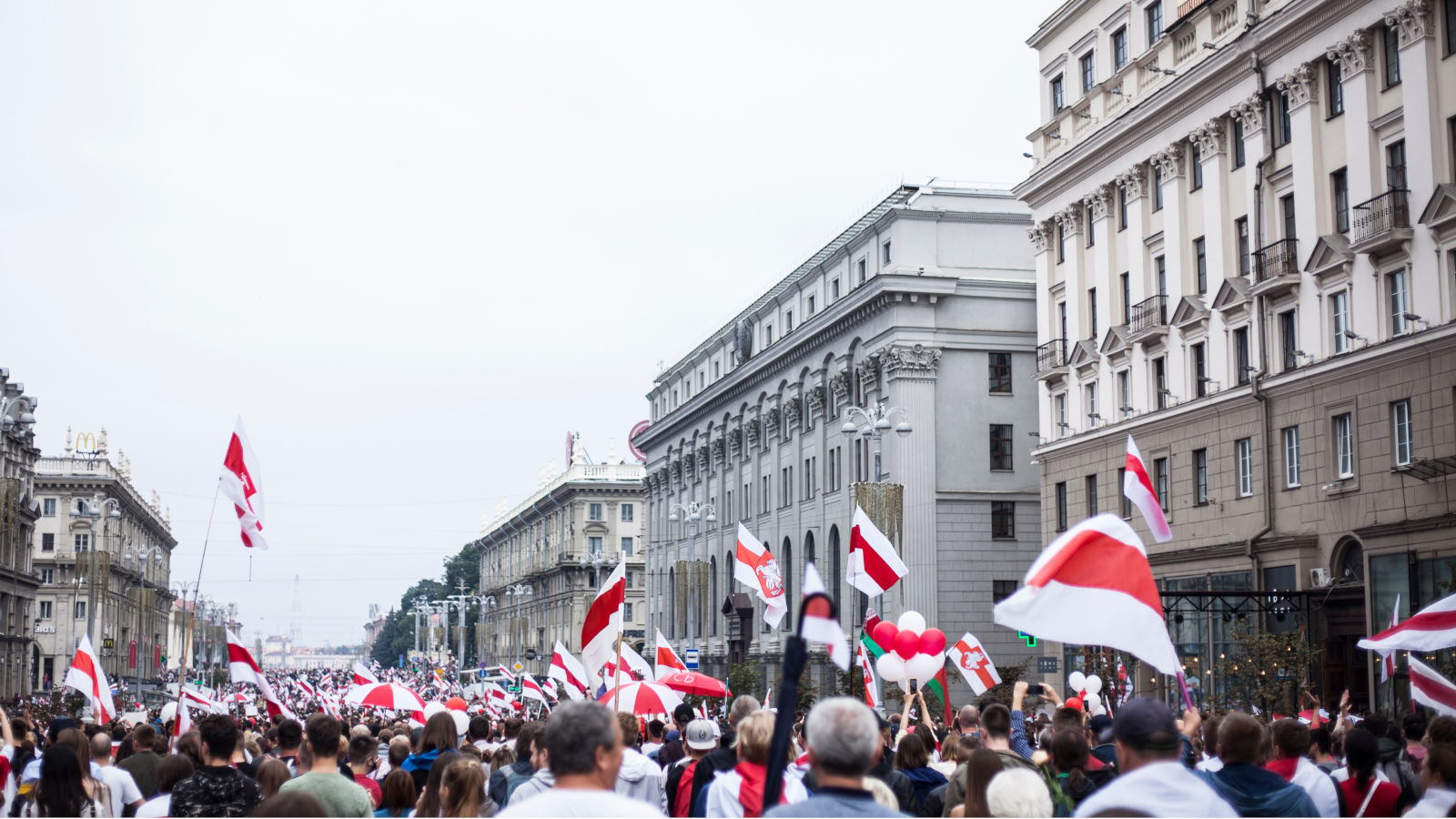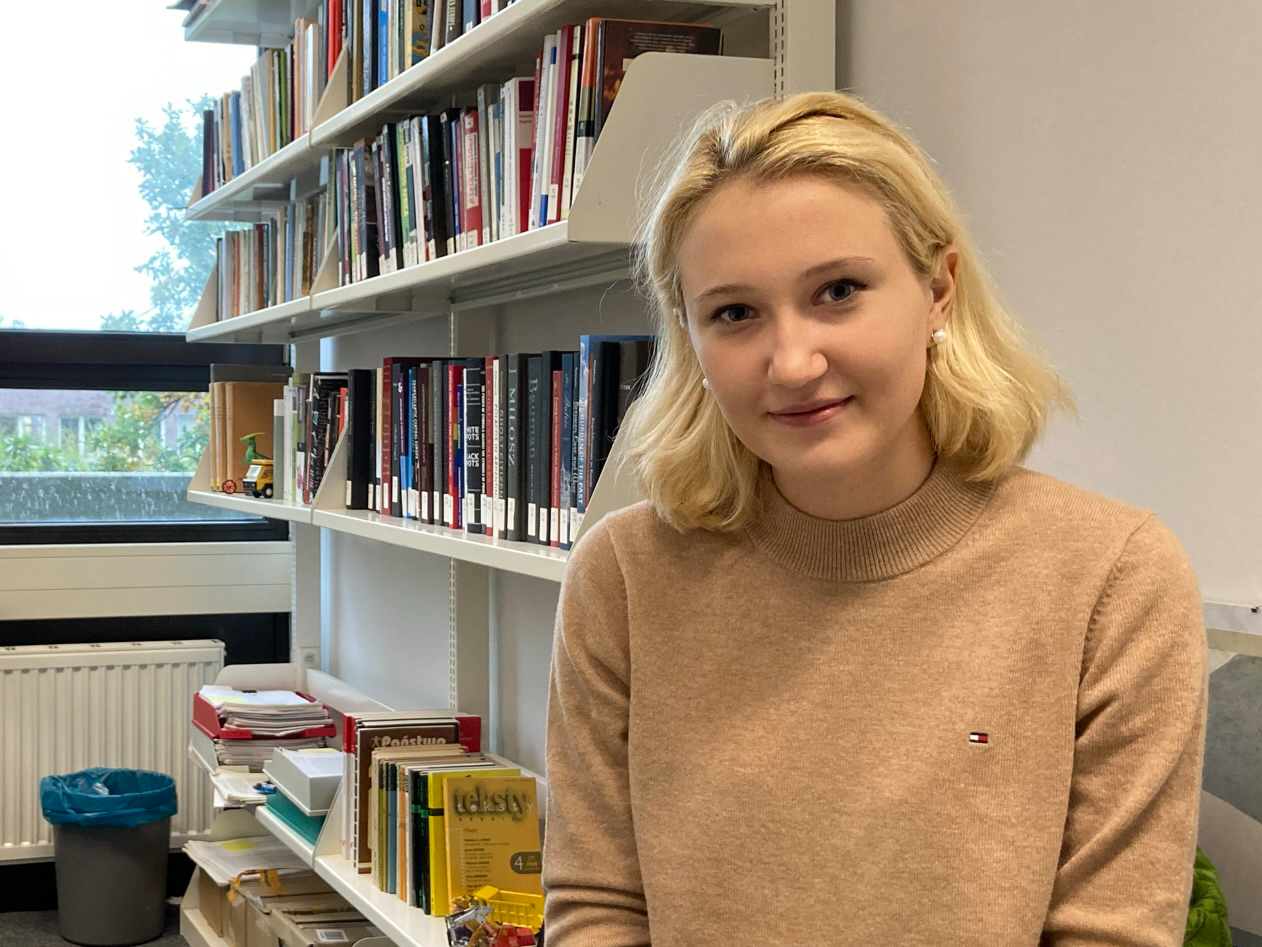
© Adobe Stock / Jane
“Everyone Can Become a Victim”
The Belarusian journalist and student Glafira Zhuk talks about the situation in Belarus
Two years ago on August 9, 2020, Alexander Lukashenko declared himself the winner of the Belarusian presidential election – for the fifth time in 27 years. More than 80 percent of the voters apparently voted for the “last and only dictator in Europe” – as he likes to refer to himself. The opposition surrounding Svetlana Tikhanovskaya and the European Union refused to accept the result. For many weeks, people protested against this severe case of electoral fraud. Students make up a large number of the opposition members and they are still being persecuted and imprisoned by the government on flimsy grounds today. One of those students is Glafira Zhuk.
I met Glafira Zhuk at the Institute of European Studies in November 2021. She resided in Bremen at the time, which was made possible by the German Federation of Journalists with the help of the Institute of European Studies. Her travels were to continue a few days later. First to Kiev, after the Russian attack on Ukraine she moved to Lithuania. In this up2date. interview, she explains why she cannot return to her home town Minsk, what her experience of the protests after the presidential elections was like, and what she expects from the new German government. The interview was held in English and Russian. Simon Lewis, an associate professor of cultural studies / the cultural history of Eastern and East-Central Europe, translated.
What is the situation like for those who protested?
There are currently no protests on the streets – not even underground ones. People are simply too scared to go out onto the streets. There is no movement as such.
What was your experience of the protests?
Many people were shocked at the level of violence used against the protesters. Many students were among the victims. The main feeling I had was that I could no longer continue to study normally in light of the situation and the brutal violence and repression. By the way, the official position of my university – the Belarusian State University – was that the university is not involved in politics and that students are therefore not allowed to express themselves politically. That meant there were to be no protests. Nothing.
Were you surprised by the massive violence applied by the Belarusian government?
It was not surprising to those who are familiar with Belarusian politics. For the past 27 years, people have been regularly imprisoned, killed, or murdered after presidential elections. What is new this time is that entirely normal people have been put in prison: lawyers and doctors, for example. It used to mainly be businessmen and politicians. However, everyone can become a victim nowadays.
To what extent were you involved in the protests?
I was a student in the third year of my bachelor’s degree within the faculty of journalism. Many alumni of my faculty were arrested. The faculty itself made no statement against the violence and arrests but we students continued the protests and raised our voices. We protested between seminars and lectures. For example, we stood in the hallways and held hands as a sign of solidarity with the victims of the violence.

© Universität Bremen / Sarah Batelka
Belarus came in second to last in the Reporters without Borders’ European Press Freedom Index. How did you document the protests as a journalist?
As a student at a state university, I am not allowed to work for independent newspapers. However, when the protests started I knew that I could not keep out of it. I, for example, spoke to journalists who had become victims. It was impossible for me to not write about it.
Then I reported on a group of students who had been sentenced to two and a half years in a prison camp after a protest. As I was not allowed to enter the court building, I reported from outside and took photos that were published on Facebook and on the Telegram channel for which I write. I was at the hairdresser’s two weeks later when the police came in and arrested me. I spent 30 days in prison and was officially accused of protesting in court. When I was finally released, I realized that my university had exmatriculated me.
The university withdrew you from studies whilst you were in prison? Why?
Apparently because I did not take an exam. I actually failed to take the exam because I was in prison.
After your release in August 2021, you came to Bremen. How did that come about?
The German Federation of Journalists invited me to Bremen for a month so that I could recuperate, relax, and get a taste of freedom. I also had the opportunity to meet many wonderful people. It has been a huge privilege to talk to them about my experiences and tell them what is currently happening in my country.
How are you feeling now?
I feel better. It is very important to me that I know I cannot be arrested by just anyone at any given time here. I am able to feel free.
Why the University of Bremen Ended Partnerships with Belarusian Universities
Two years ago, Alexander Lukashenko was declared the winner of a sham election in Belarus. At the end of 2021, the University of Bremen has terminated partnership agreements with two Belarusian universities. In view of the restrictions to academic freedom and the repression of students and academics, there is no longer a common basis of values for cooperating with state universities in Belarus.
Detention, deportation, dismissal, and persecution – students in Belarus pay a high price for their criticism of the regime. “It was imperative for the University of Bremen to terminate our partnerships with Belarusian state universities,” explains Professor Eva-Maria Feichtner, Vice President for International and Diversity. “The events taking place at universities in Belarus are in no way compatible with the values that guide the University of Bremen.”
The terminations apply to the partnership with the Belarusian National Technical University (BNTU) and with the Belarusian State University (BSU). Yet since these partnership agreements have been dormant for some time now, the decision to terminate has no effect on students and academics on site.
Instead, Professor Feichtner stresses that the university now aims to “support students and academics from Belarus on an individual basis.” For example, the university works with nongovernmental organizations, as well as people in Belarus or in exile. Although the contracts have been terminated, individual contacts between members of the University of Bremen and students and academics in Belarus will be maintained. Rather, he said, the aim was to prevent Belarus from being able to adorn itself with supposed international esteem.